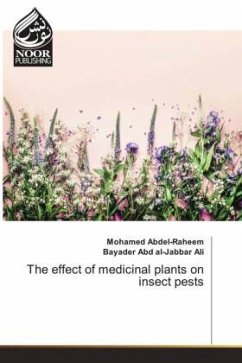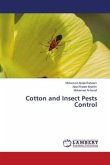Plant defense against herbivory or host-plant resistance is a range of adaptations evolved by plants which improve their survival and reproduction by reducing the impact of herbivores. Many plants produce secondary metabolites, known as allelochemicals, that influence the behavior, growth, or survival of herbivores. These chemical defenses can act as repellents or toxins to herbivores or reduce plant digestibility. Another defensive strategy of plants is changing their attractiveness. Plants can sense being touched, and they can respond with strategies to defend against herbivores. Plants alter their appearance by changing their size or quality in a way that prevents overconsumption by large herbivores, reducing the rate at which they are consumed.
Bitte wählen Sie Ihr Anliegen aus.
Rechnungen
Retourenschein anfordern
Bestellstatus
Storno








